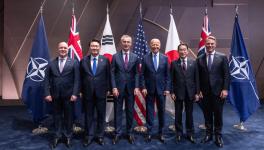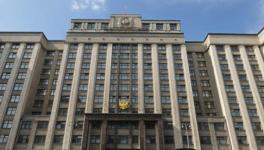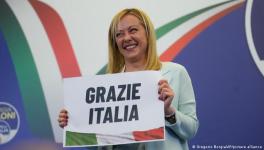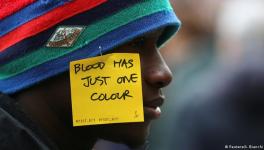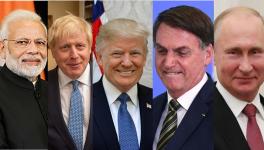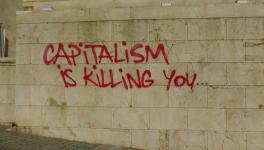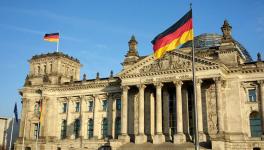Populists, Far Right Set to Form Coalition Government in Italy
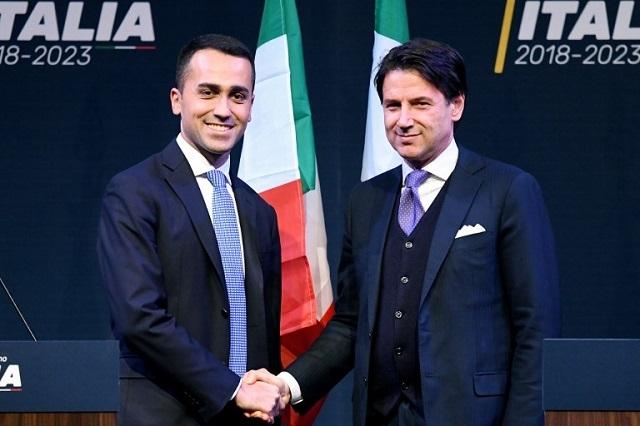
Prime Ministerial Giuseppe Conte on the right, Five Star leader Luigi Di Maio on the left. Credits: Filippo Monteforte/AFP
After the Italian elections on March 4 this year resulted in a hung assembly, the populist, anti-establishment party founded by a comedian - the Movement Five Star (M5S) - is now all set to form a government with the hard-right xenophobic party, The League. A 53-year-old law professor, Giuseppe Conte, who has little political experience and is not an MP, was chosen as the Prime Minister by both the parties. Once his name is approved by Italy’s President Sergio Mattarella, a new government will be formed.
The far-right and the populists have come together on a ‘nationalist’ programme that promises to break out of the EU-imposed fiscal constraints and provide a form of basic income. At the receiving end of this governmental policy are likely to be immigrants, against whom both parties have agreed to take tough measures.
The League was once known as the Northern League and had advocated the secession of the richer provinces in the north from the rest of the country. The depiction of southerners as criminals and lazy, uncivilized people living off on welfare financed by the north was a common practice by the party members.
When refugees, escaping conflicts in West Asia and parts of Africa, started arriving on the Italian shores, anti-immigrant sentiments rose throughout the country, including in the south. Eyeing the election, the party dropped ‘Northern’ from its name and positioned itself as a nationalist force, campaigning against immigration and the EU’s imposition of its policies on the country. Taking a cue from Donald Trump, “Italians first” was one of the slogans deployed by this party during the election campaign.
M5S, which had fashioned itself as an alternative to traditional party politics, and took up themes such as direct democracy, degrowth, ecology etc, had taken an ambiguous stand on the question of immigration. However, by 2017, when over 600,000 migrants had arrived from north Africa over three years, the leader of M5S, Luigi Di Maio began calling for “an immediate stop to the sea-taxi service (a derogatory reference to the rescue of refugees from the sea by organizations such as Medecins Sans Frontieres (MSF).
Nonetheless, M5S remained wary of The League. “The real danger to Europe is The League”, the party had said while campaigning for this elections. The League, in turn, had claimed, “The 5-Star Movement would be the downfall of Italy.”
Uncertainty after the polls
However, the antagonistic relationship between the two parties began to change after the elections resulted in a hung assembly, with M5S emerging as the single largest party with the highest vote share of 32.1%, while the centre-right CDX coalition bagged 39.49% of the votes. The coalition included the Forza Italia, which is headed by media baron and former Prime Minister Silvio Berlusconi and The League.
A day after the election, Matteo Salvini, leader of The League, assured the electorate that his party would stick to the promise it had made of not forming an alliance with M5S. However, barely 10 days later, he opened the door to M5S, offering to govern together in a coalition, on the condition that Forza Italia would also be a part of it.
Rejecting his offer, M5S leader Luigi Di Maio said that allowing Berlusconi would be the equivalent of "choosing restoration instead of revolution" because “Berlusconi represents the past.. we want to look to the future.” Another leader of M5S described Berlusconi, who has faced accusations of corruption and sexual harassment, as “the absolute evil of our country.”
Instead, Di Miao looked to the centre-left Democratic Party (PD) of Matteo Renzi, who was Italy’s Prime Minister until December 2016, when he resigned after losing a referendum to reform the constitution. PD had a vote share of 19.12%. The offer, however, was rejected by PD's interim leader Maurizio Martina, who declared that his party will stick to the decision they had made to remain in the opposition.
After three rounds of government formation discussions led by President Mattarella did not break the impasse - with PD refusing to form any alliance and M5S refusing to form a government with the League, unless Berlusconi' Forza Italia party could be left out - the President declared his intention to appoint a neutral government and offered to hold an early election in July.
Two days later, on May 9, both the parties requested the President for 24 hours to arrive at an agreement on the government formation. Later in the day, after Berlusconi announced that his party would not back MS5 in a vote of confidence, but would nonetheless not use a veto to stop an alliance between his allies and M5S, the impasse was finally broken.
EU shudders at the coalition’s programme
The first draft of the government programme agreed upon on May 14 contained the proposal to introduce a mechanism to exit the Eurozone and floated the idea that the European Central Bank should cancel the Italian Government’s debt of about €250 billion, sending shockwaves across the European Union.
However, both the proposals were dropped in the final version agreed upon on May 19. Nonetheless, the final version does call for a “reevaluation of the EU budget and a review of “European economic governance” — namely the EU rules imposing fiscal constraints on national governments. These, the parties say, are based more on the “predominance of the market” than on people’s economic and social needs,” Politico reported.
Further, the parties have also demanded that the EU reform its bail-in regime, which, critics have warned, puts the savings of account holders at risk. The agreement also rules out the privatization of Italy’s financially stressed national airline Alitalia.
Apart from a promise to reverse the increase of the retirement age, a universal citizens’ income, which M5S had promised, has been made a part of the programme, albeit in the diluted form. The new proposal envisages some form of unemployment insurance, which pays for a person for a period of two years, within which she is expected to find a job.
Although an exit from the EU has been ruled out for now, the EU is nevertheless concerned that these programmes, if pursued, would require huge government expenditure, which would be contrary to the austerity policies it has been imposing across Europe.
In an apparent reference to the commitment the previous government had made to reduce Italy’s budget deficit, the French Economy Minister Bruno Le Maire called on Italy to respect its EU budget commitments, cautioning that a failure to do so would mean the “eurozone will be threatened.” Disregarding this call, Salvini tweeted, “We will do the opposite of what the preceding governments have done. Am I wrong?”
Ewald Nowotny, a council member European Central Bank, expressed concern, saying that these proposed policies were creating “nervousness”. “I hope that the practice will be a much wiser approach than what” we hear today from the newspapers, he said.
Running huge budget deficit, it seems, will be the only way to finance all these economic programmes, given that the League, which had been pushing for tax-cuts, has managed to include in the agreement a dual tax rate of 15% and 20% depending on incomes.
The final agreement also calls on the EU to lift the sanctions on Russia, although not demanding that it be done immediately, as was the case in the previous version. The two parties maintain that Russia is not “a military threat”, and could possibly become Europe’s partner.
The worst affected by this coalition government will be immigrants, with both the parties commiting to deport 500 million of them. They have also agreed to detain refugees for a maximum of 18 months while their claims are being processed. “The League’s influence”, Politico reported, “is evident in the section devoted to migration, which the document describes as “unsustainable.. fueled by national public funds and often managed with little transparency and open to infiltration by organized crime.””
According to a report in Financial Times, Di Maio is most likely to head the ministries of labour and economic development, to be in charge of disbursing the finances for the universal citizens' income and other economic policies which have been the main campaign promises the party had made. Since anti-immigration was the main platform the League had been campaigning on, “Salvini is likely to be appointed as interior minister, to oversee a planned crackdown on immigration.”
Get the latest reports & analysis with people's perspective on Protests, movements & deep analytical videos, discussions of the current affairs in your Telegram app. Subscribe to NewsClick's Telegram channel & get Real-Time updates on stories, as they get published on our website.









